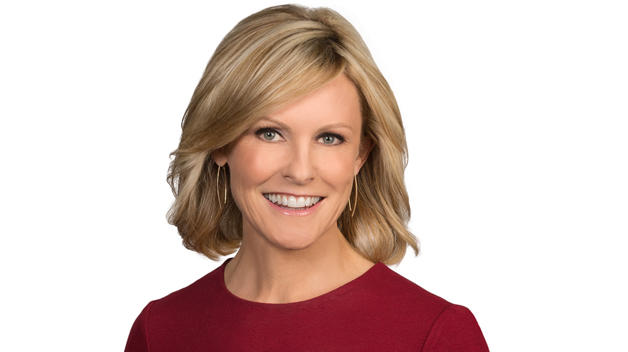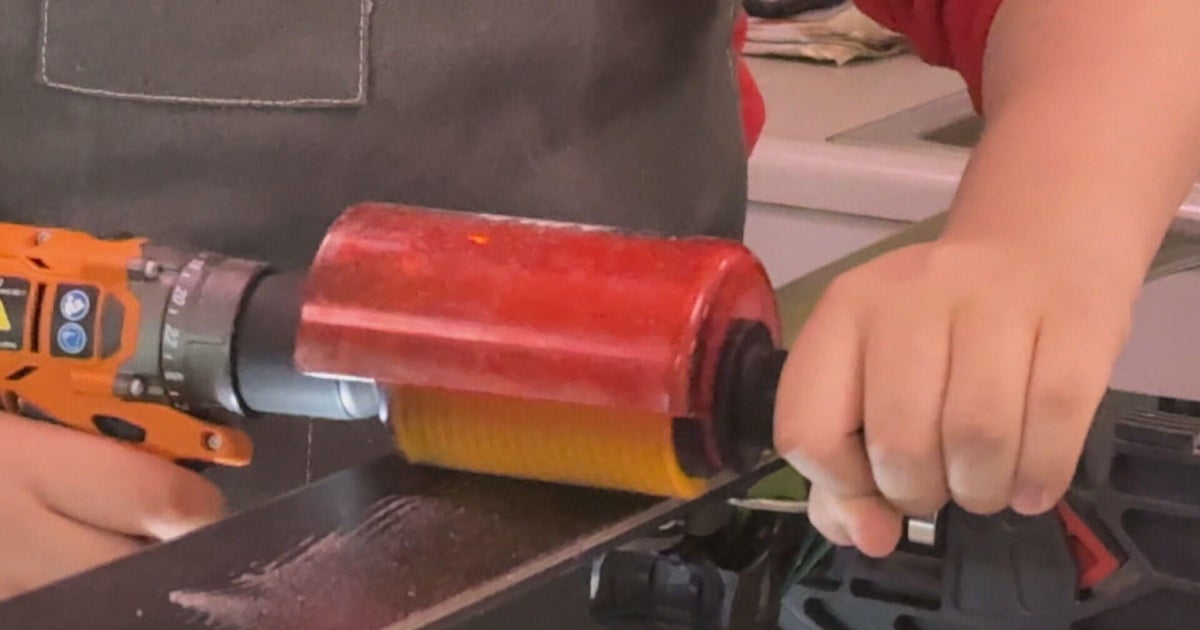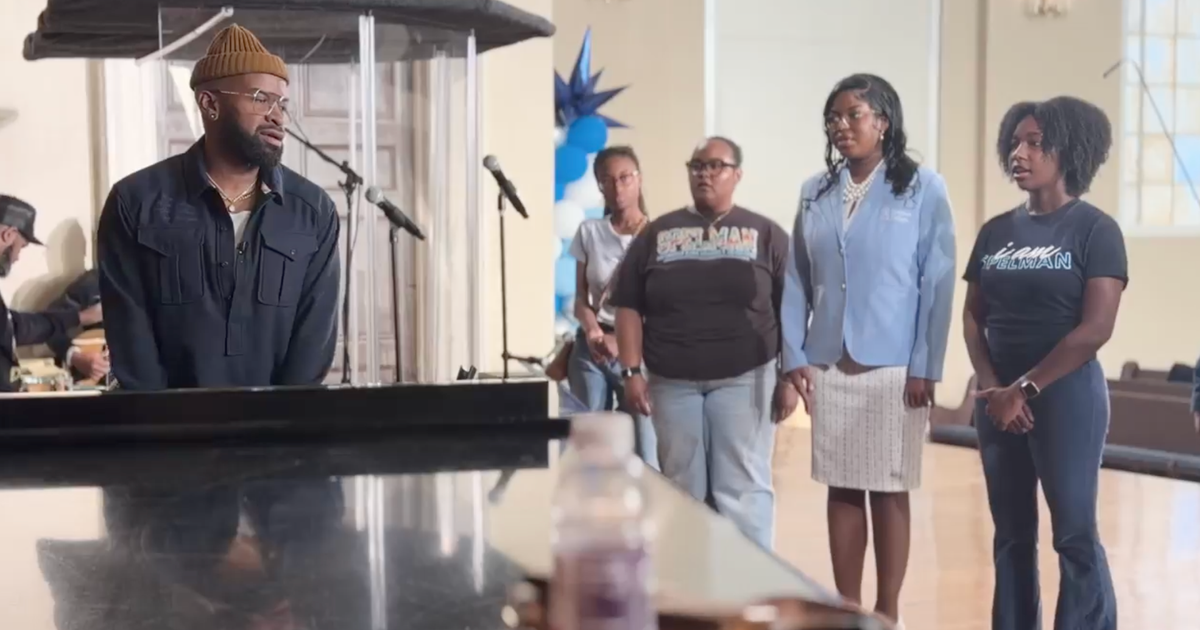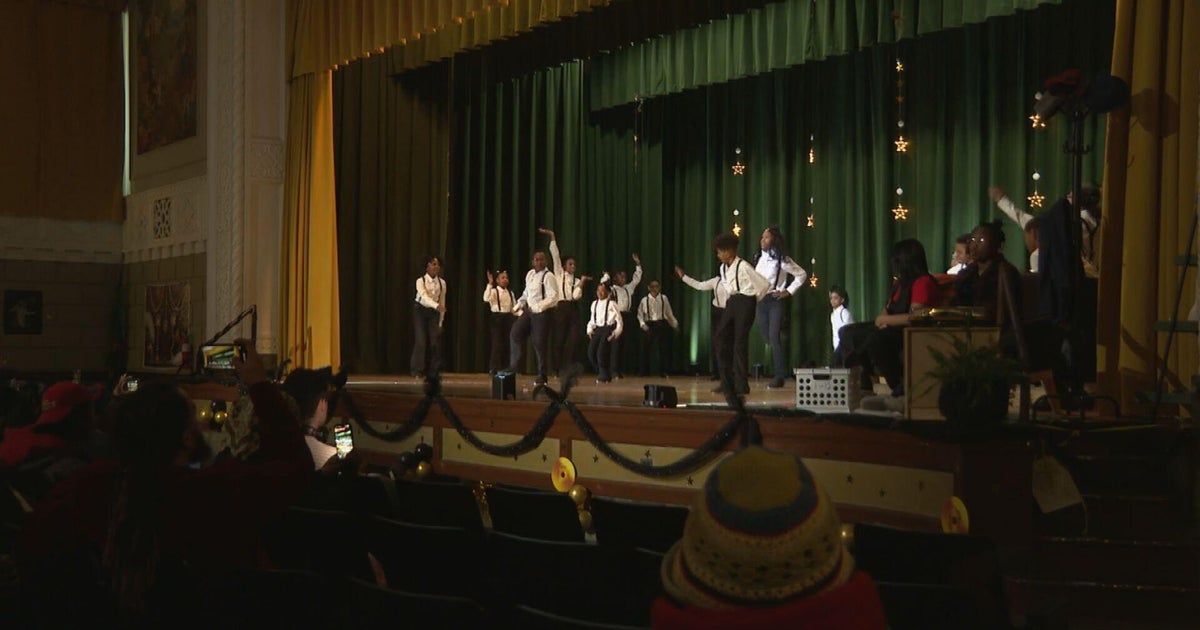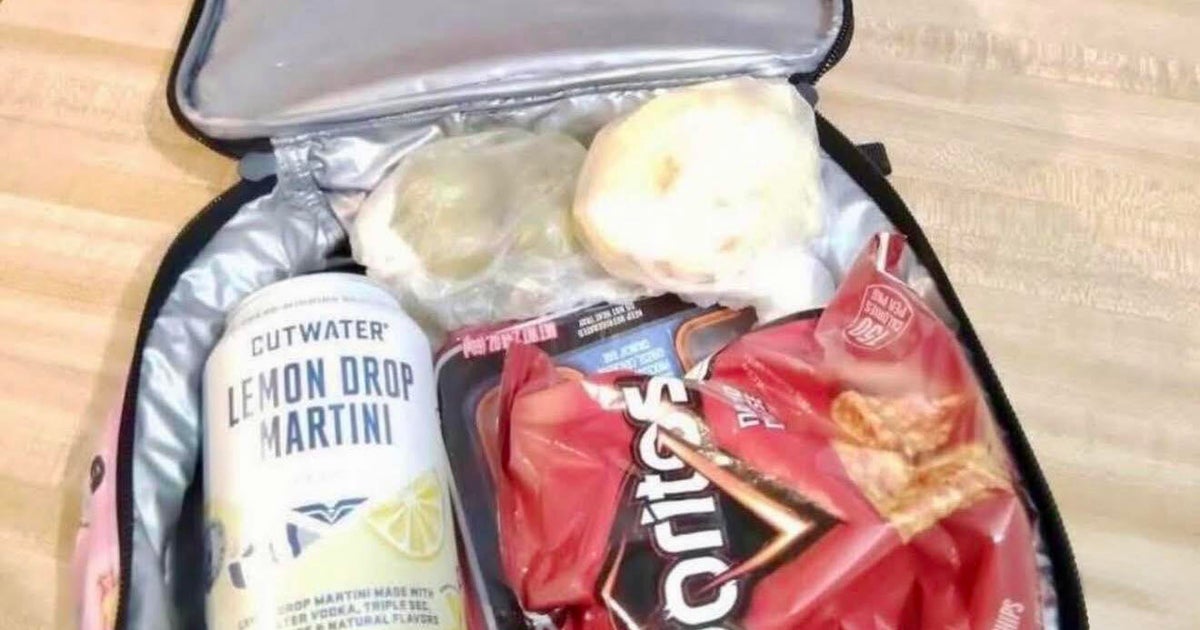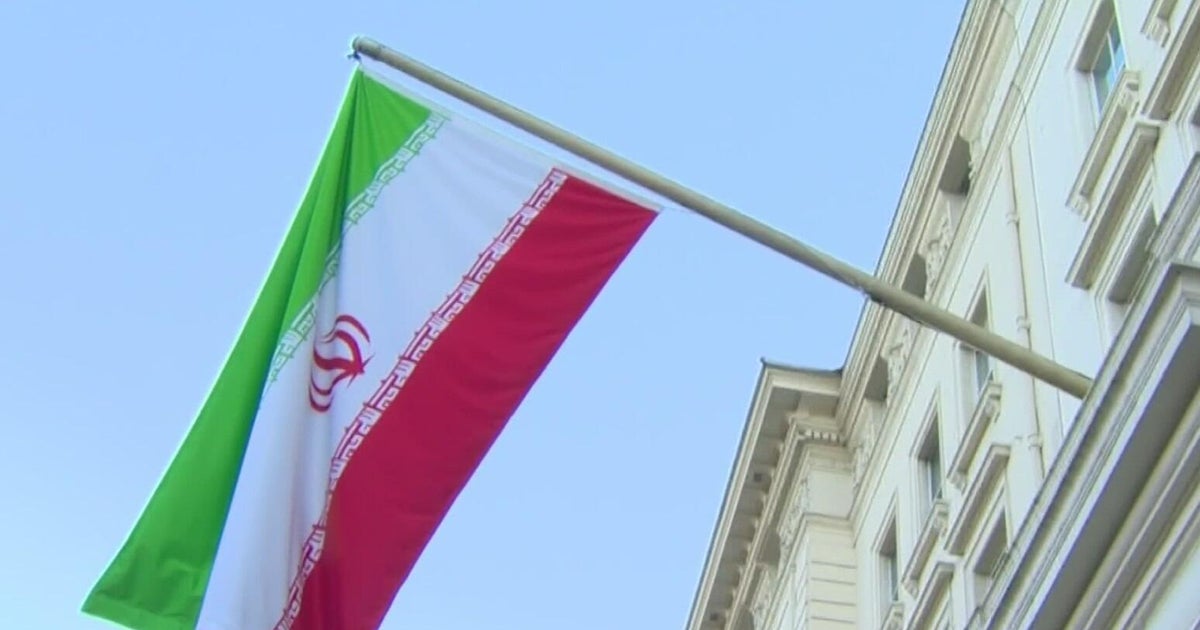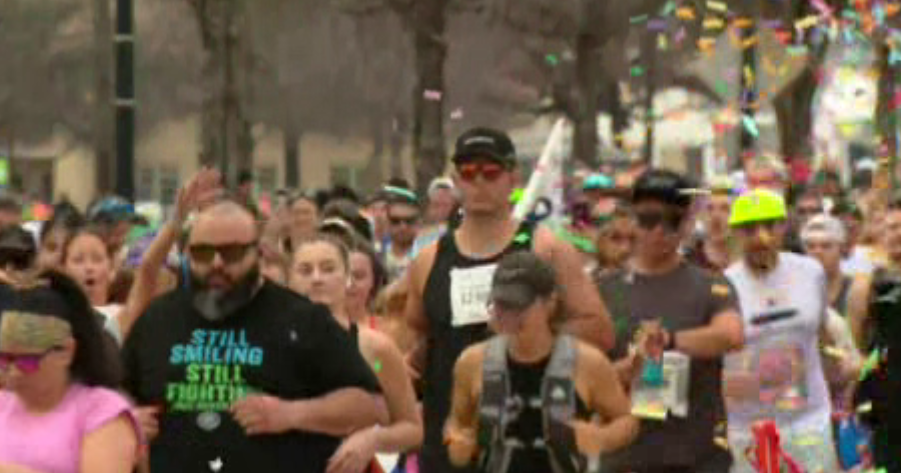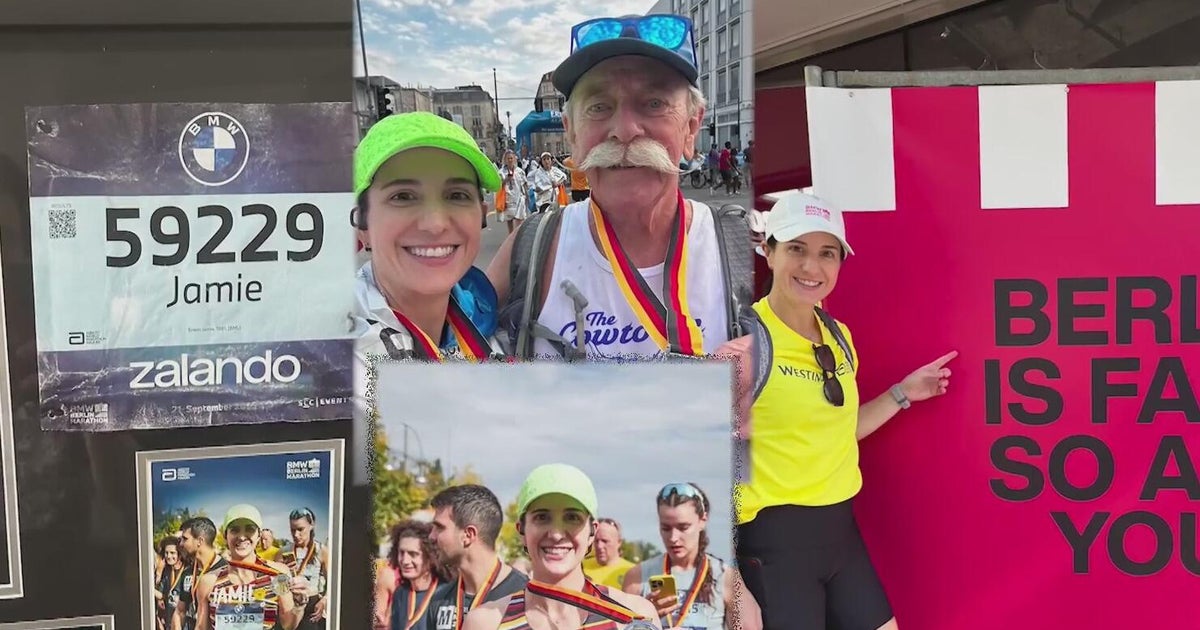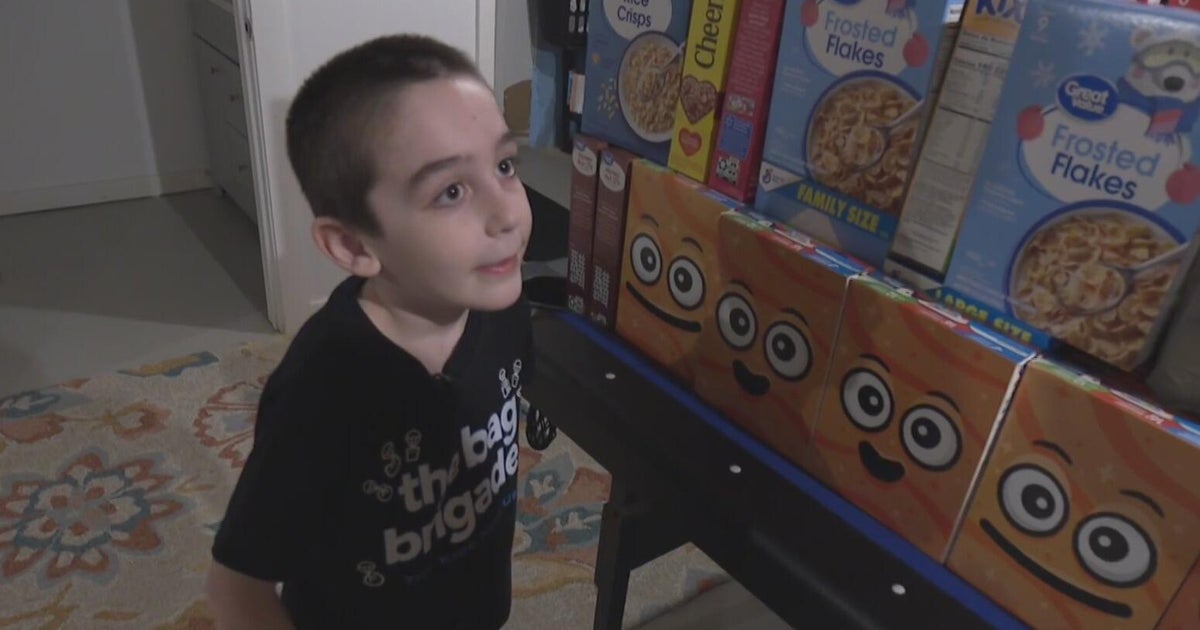Harvard freshman continues to grow worldwide charity for kids with cancer she founded at 14
CAMBRIDGE - A freshman at Harvard is working to grow the cancer charity she founded when she was just 14 years old.
When Olivia Zhang lost two of the people she loved most to cancer, she was in what she describes as "a spiral." Miss Michelle was her favorite teacher, the adult who shared her love of art and who led Zhang's after-school program in McLean, Virginia. Her grandfather was a supportive presence whom she visited in China every summer. To lose them both in a single year was overwhelming.
"I had a lot of emotions," Zhang remembered. "Primarily anger at the time." Even as a sixth-grader, she knew that she had a choice. "I either stay in a dark mindset or I do something to help the kids that they cared so deeply about."
At 14, Olivia launched a non-profit that, five years later, has supported roughly 8,000 young cancer patients. Cancer Kids First (CKF) is the largest youth-led cancer non-profit in the world. "Being able to channel that negative emotion and turn it into something positive was a learning process along the way. But definitely something that's helped me reframe how I think about things, even today," said Zhang.
On a Saturday in early December, Olivia joined CKF volunteers from various towns in Greater Boston at Arlington High School to prepare care packages for patients. Based on their specific wish lists, Olivia purchased gifts for young patients who are no longer in the hospital but are still undergoing treatment. Her fellow volunteers were matching the names with the presents, packaging the gifts and dressing up the boxes in festive tissue paper before labeling each box for shipment.
The turnout surprised even the organizers. Arlington High School CKF Chapter President Lucas Araujo expected 25 to 30 students. Almost 50 showed up. Araujo found CKF online after his stepfather died of cancer in 2022. For him, the effort to make other children feel supported is deeply personal. "Seeing that we have such a big group that care—that was really important to me," he said.
Araujo said it's most gratifying to receive photos of patients with their toys. The group recently sent Halloween care packages, one of which went to a boy who was given just six months to live. That was the care package Araujo made. The photo he received left an indelible memory. "Seeing him with the card that I hand wrote… it was super touching."
The adult supervising the effort knows what this means. Rob DiLoreto, a father of four, is Arlington High School's Dean of Students. He said that he jumped at the chance to be a part of the CKF service event. In 1994, he lost his firstborn, his baby boy Jason, to neuroblastoma. "When parents and families have children that are going through his horrific time, your life is just very fragile," he said. DiLoreto applauds the students who turned out to prepare care packages. "It's very special to receive any act of kindness when you have a child who is fighting for their life. You just cling to hope. Any act of kindness brings you a little more hope."
The Care Package Program is one of five CKF service programs. Two, the Toys & Books Program and the Treatment Services Program, are primarily for the group's partner hospitals, including Boston Children's Hospital. The Treatment Services Program is an area of particular interest for Zhang because it provides equipment and resources to hospitals in countries where health care services lag far behind the United States. CKF has provided resources, like CPR dolls, to medical facilities in Mexico, India and Bolivia. Three service programs offer opportunities to connect with patients directly.
The Arts Program creates cards and crafts for children with cancer. Zhang remembers sending art to her grandfather as a healing gift. "When he was going through a difficult time during treatment, I would give him a doll that I made or a painting that I made. So art became a way to, I think, spark joy. I wanted to transfer that into a service program."
The Patient Interaction Program is Zhang's favorite. It allows volunteers to connect, primary through Zoom, with patients the group serves. As a youth-led organization, she said it is a meaningful way to build friendships. It also allows young volunteers to develop greater empathy and to see kids in treatment as kids, not just patients, their playful, hopeful selves. This experience, in particular, can teach powerful lessons.
"One of our patients, Theo, had a brain tumor at the time we were helping him out. We held a Zoom that was primarily centered around STEM because that was his favorite topic. He was talking about how he used to build rocket models in his hospital bed. And he was only 9 years old! And he was learning all these things about astrophysics, which I knew nothing about," Zhang said, still clearly in awe. "And I was absolutely mind-blown because despite all the things that he had to go through like mentally, emotionally, everything, he found the time to make things that he loved. And he found time to pursue topics that he enjoyed. They've been able to teach me lessons that I wouldn't have recognized otherwise."
Lessons have been an essential part of her growth, and the organization's, from the beginning. While the group's volunteer numbers are exceptional, starting a non-profit as a young teenager was not immediately successful. Zhang said that in the early months, when she and her friends were relying on word of mouth and in-school bulletins in their community, CKF wasn't immediately successful in the way she had hoped. She said group members took two months off to reflect on their efforts and what might be impeding success. The key, she said, was reconvening after that break and enlisting adult mentors to join their board of directors. "They taught us how to pitch efficiently to companies, how to do slide decks to present and also how to create targeted service programs that set us apart from other non-profits."
Particularly during the COVID pandemic, the group was able to recruit volunteers using social media sites like TikTok and online resources like Volunteers Match.
Now a freshman at Harvard University, Zhang focuses simultaneously on her studies and ways to grow the organization she founded. Her goal, by the end of 2024, is to have a CKF partner hospital in all 50 states and to increase the number of countries receiving Treatment Services from 16 to 25. Looking around the room at the army of volunteers carefully packing toys with brightly-colored tissue paper, Zhang's pride and gratitude is clear. "It means so much to me because it means they're not just believing in my mission and what I started out wanting to create, but they believe in something bigger than themselves."
For more information on Cancer Kids First, you can visit the website by clicking here.
